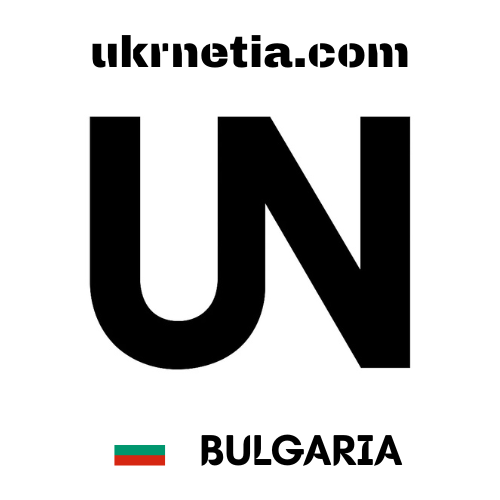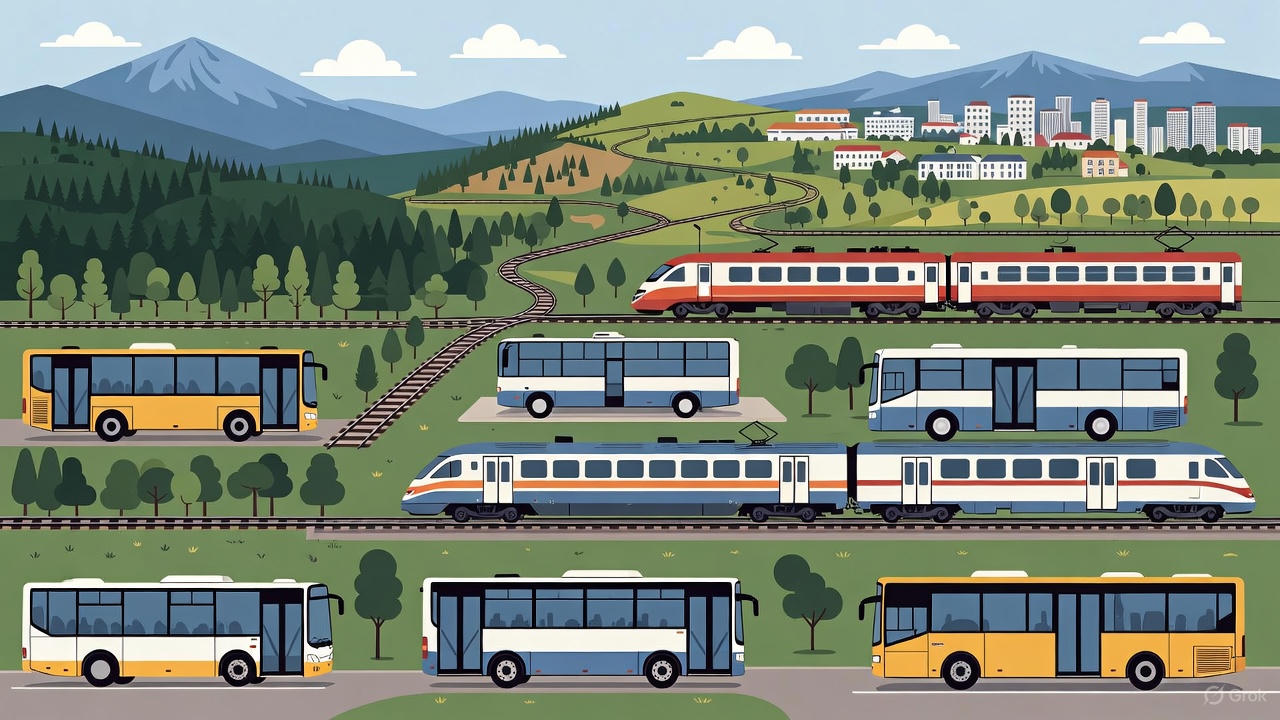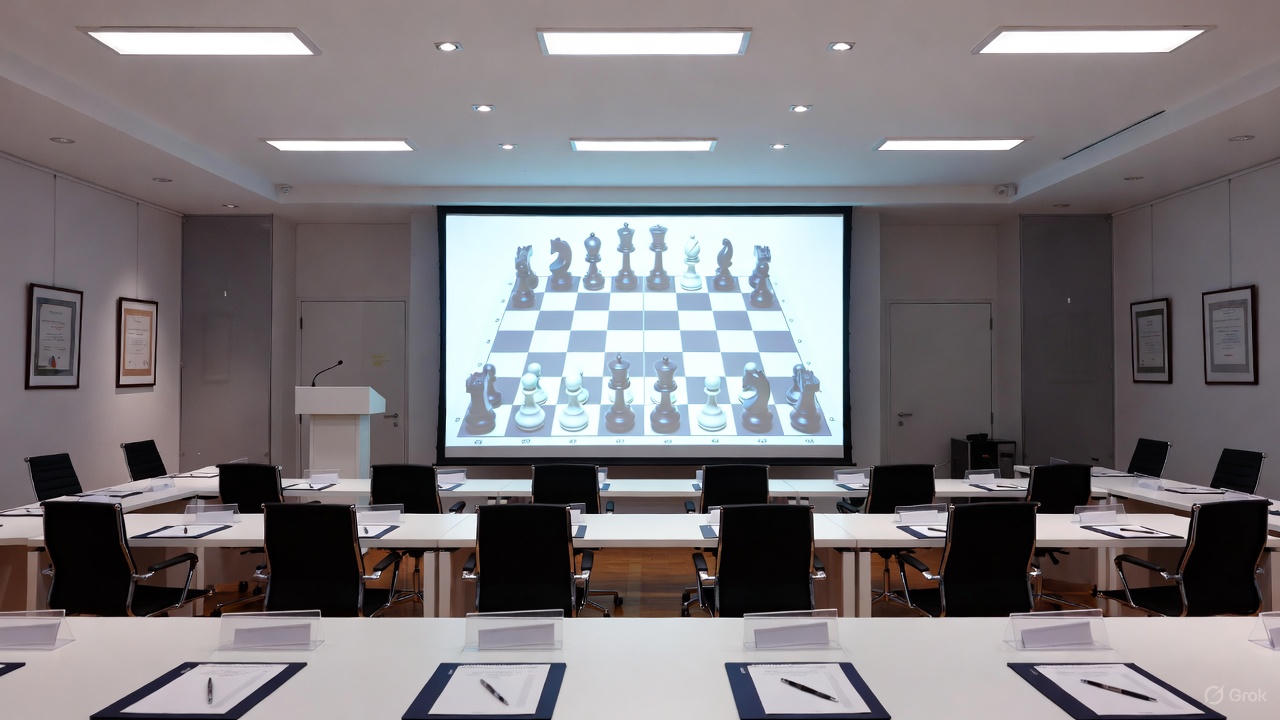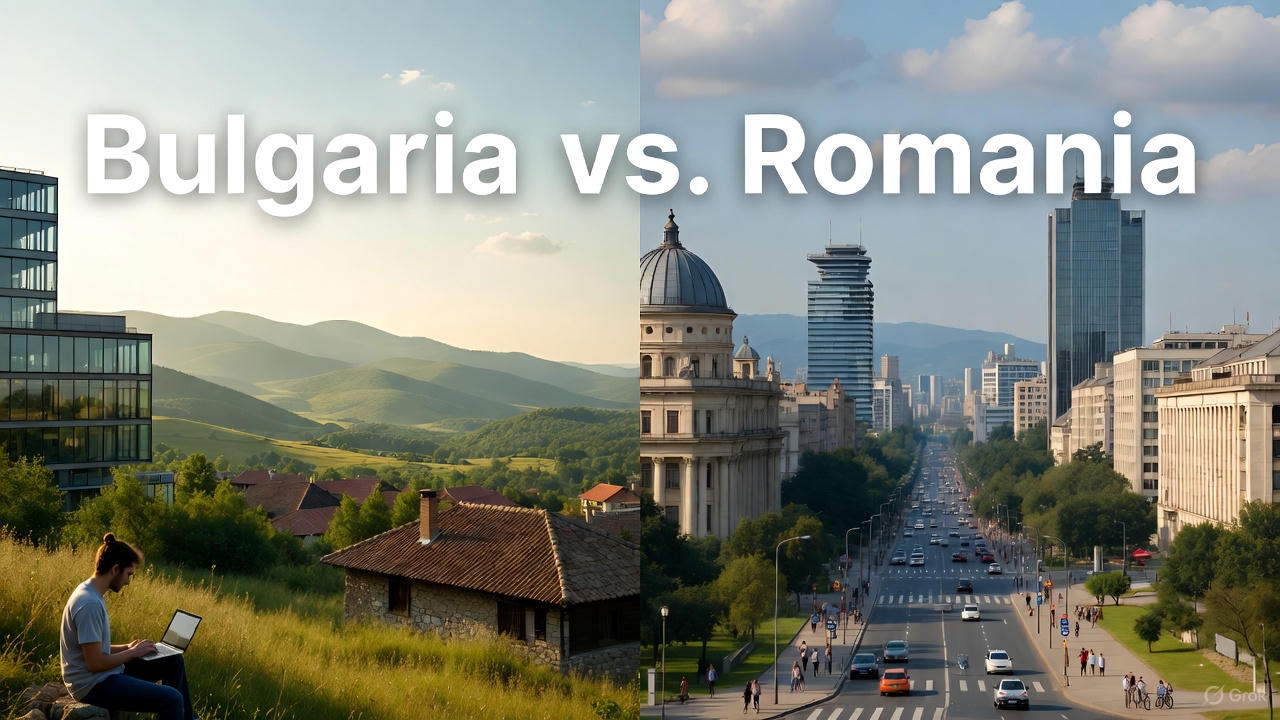Code of Life: The Story of Maksym, Who Found His Path in Sofia

When Maksym Kovalenko first boarded the night bus from Lviv to Sofia in November 2021, he couldn’t sleep. Not because of the uncomfortable seats or the engine’s rumble—his mind wouldn’t let go of the thought that he might be making the biggest mistake of his life.
The bus window reflected the face of a thirty-two-year-old programmer who was leaving everything familiar behind: his apartment on Kopernyka Street, where he knew every paving stone by heart; his favorite café, Svit Kavy, where the barista would start making his flat white the moment he crossed the threshold; evening walks up Vysokyi Zamok with friends after a day in the open-space office of a local startup.
Maybe I should turn back? The thought spun in Maksym’s head the entire way through Romania. He stared at the dark silhouettes of the Carpathians outside the window and tried to find an answer to the question that had tormented him for the past three months: Why am I even doing this?
A Decision That Took Shape Gradually
The idea of moving didn’t come out of nowhere. In the summer of 2021, Maksym was working as a senior developer at a Lviv company building SaaS solutions for European clients. The job was interesting, the salary decent by Ukrainian standards, but something gnawed at him.
“I felt like I was treading water,” Maksym recalls. “In Lviv, the IT community is tight-knit, and that has its perks. But I wanted something bigger, a new perspective. Not necessarily London or Berlin—just something different.”
Bulgaria appeared almost by chance. At an international web development conference, Maksym met Ivaylo, a Bulgarian programmer who spoke enthusiastically about Sofia’s software scene. “You know, we don’t have the hype of the big European capitals, but that’s exactly what makes it interesting,” Ivaylo said, sipping rakia after the official program. “The market’s growing, there’s demand for good specialists, and life is much cheaper than in Western Europe. Plus, we’re Slavs too—you’ll adapt quickly.”
That conversation stuck with Maksym. He started researching: reading forums of Ukrainian expats, studying the job market, crunching budgets. Bulgaria seemed like a compromise—close enough to Ukraine not to feel completely cut off from home, but far enough to experience real change.
Doubts and Fears
When Maksym finally landed a job at a Sofia-based fintech company and received an offer, the real internal struggle began. His parents didn’t understand: “Son, why go to some Bulgaria? You have everything here!” His friends joked: “Maks, what, retiring to IT pension in Sofia? It’s not San Francisco!”
What scared Maksym most was uncertainty. What if he couldn’t adapt? What if the job wasn’t what it seemed in interviews? What if he just felt lonely in a foreign country?
There were objective reasons for doubt, too. Autumn 2021—the tension on Ukraine’s eastern border was rising, though few believed in the possibility of full-scale war. Maybe now’s not the time to leave? Maksym thought, reading the news. But something told him that if he didn’t take this step now, the opportunity might vanish forever.
In November, he sublet his apartment, packed two large suitcases (the laptop was the priority; everything else he’d buy), and boarded the bus. His mother cried at the station. His father gripped his hand tightly: “Good luck, son. But remember—home is always here.”
The First Months: Wrestling with Reality
Sofia greeted Maksym with a cold November morning and nearly empty streets. The rented one-bedroom apartment in the Lyulin district turned out to be far more modest than in the photos—typical Soviet-era housing that reminded him of Lviv’s sleeping districts, only with Bulgarian signs.
The first week was pure stress. Maksym didn’t speak Bulgarian (relying on English and Slavic similarities), kept getting lost in the metro, couldn’t get used to the local food. At the supermarket, he spent half an hour choosing yogurt, trying to decipher Cyrillic labels with strange Bulgarian word logic.
At the new job, he had to readjust too. The team was international—Bulgarians, Serbs, one Greek, even a programmer from Brazil. Everyone spoke English, which was convenient, but Maksym felt a cultural barrier. The work style differed from Ukraine’s—less chaotic, more structured, but also less flexible.
“For the first two months, every evening I asked myself: Why did I come here?” Maksym admits. “I missed Lviv, my friends, my routine. Even the coffee was brewed differently. I seriously considered going back.”
What stopped him? “Pride, probably,” he laughs. “I didn’t want to come home as the guy who couldn’t last three months. Plus, the job was decent, and the project was interesting. I decided to give myself more time.”
The Turning Point
The turning point came in February 2022. That February.
On the morning of February 24, Maksym woke to his mother’s call. Her trembling voice said only: “It’s started. Explosions in Kyiv. War.”
The following days passed in a fog. Maksym couldn’t focus on work, constantly checking news, messaging friends and family, trying to confirm everyone was safe. Lviv was still relatively calm, but the future looked terrifyingly uncertain.
“That’s when I first felt my decision to move might have been right,” Maksym says. “Not because I was running away or foresaw the war—nothing like that. I was simply safe, able to work, earn money, and—most importantly—help. If I’d been in Lviv, I might be manning checkpoints or evacuating.”
Maksym immediately joined volunteer efforts. With other Ukrainians in Sofia, he organized humanitarian aid collections and helped refugees arriving in Bulgaria. He discovered that Sofia’s Ukrainian diaspora, though small, was tightly knit.
A New Life Gains Momentum
Spring 2022 became a time of inner transformation. Maksym finally began not just existing in Sofia, but living there.
He met Olena, a Ukrainian who had moved to Bulgaria before the war and worked in marketing. She showed him the “real” Sofia—not the tourist version, but where locals lived: small restaurants in Lozenets, Saturday hikes up Vitosha Mountain, picnics in Borisova Gradina park.
Work started bringing satisfaction too. Maksym contributed to several key projects, proved his skills, and was promoted to team lead. His salary increased, allowing him to move to a better apartment in the city center near the NDK.
“I started to understand Sofia,” Maksym explains. “This city doesn’t shout about itself or try to impress. It’s calm, a bit chaotic in its organization, but cozy. You can live here, not just survive.”
Maksym learned Bulgarian slowly but steadily. The Cyrillic alphabet helped, though false friends—words similar to Ukrainian but with different meanings—constantly tripped him up. But a sense of belonging emerged: ordering “edna banitsa i ayryan” in a café without switching to English felt like a small victory.
Professional Growth
By the end of 2022, Maksym’s career in Sofia was on solid ground. Bulgaria’s fintech industry was booming, and Ukrainian IT expertise was highly valued. Maksym worked on a mobile banking project for a startup planning Balkan expansion.
What pleasantly surprised him was the professionalism in Bulgaria’s IT sector. “I somehow thought it would be like a second-tier league,” he admits. “But there are plenty of strong specialists, interesting projects, solid processes. Not Silicon Valley, of course, but fully European.”
Sofia proved a good IT hub—lower salaries than Western Europe attracted companies, while talent and infrastructure made it appealing for offices and R&D centers.
Social Life and Integration
Gradually, Maksym built his social circle. Beyond the Ukrainian diaspora, he connected with local Bulgarian programmers and expats from other countries. Friday hangouts with the team at a mehana near the office became tradition.
“Bulgarians turned out to be much more open than I expected,” Maksym says. “There’s a stereotype about Balkan reserve, but people are friendly, especially if you try speaking their language. Plus, the Slavic mentality is close—we understand each other with half a word.”
Maksym discovered Bulgarian culture—from Shopska salad and kebapche to music at spring festivals. Weekends he spent exploring the country: Rila Monastery, ancient Plovdiv, the Black Sea coast in summer.
Looking Back: Why It Was Right
Today, nearly four years after moving, Maksym is certain: leaving was the right choice. Not because he predicted the war—nothing of the sort. But because the move pushed him out of his comfort zone and opened new doors.
“If I’d stayed in Lviv, I’d have managed, of course,” Maksym reflects. “But now I see the move gave me far more than I expected. I became more independent, more open to the new, grew professionally. I saw the world is bigger than your hometown—and that’s not scary, it’s exciting.”
“I didn’t flee Ukraine,” Maksym emphasizes. “I found my place in the world. And that place lets me help Ukraine—financially, through volunteering, professionally. From here, I can do more than if I were in Lviv worrying every day.”
Lessons and Advice
When asked what he’d advise other Ukrainian IT professionals considering relocation, Maksym says:
“First, don’t fear leaving your comfort zone. Yes, the first months will be hard, but it’s worth it. Second, you don’t have to go to London or San Francisco—there are plenty of interesting places with less hype but solid opportunities. Bulgaria, Romania, Poland, the Baltics—all can be great starting points.
Third, give yourself time. I was ready to give up after two months, but I waited a bit longer—and everything changed. Adaptation takes time.
And most importantly—remember that moving isn’t betrayal or escape. It’s just another way to live and grow. Ukraine is always with you, wherever you are.”
Looking Ahead
Maksym doesn’t rule out returning to Ukraine someday. “When the war ends, when the country starts rebuilding, maybe I’ll come back,” he says. “Ukrainian IT will be needed for reconstruction. But for now, I’m here, doing my work, helping however I can, and living a full life.”
Now he’s building his own startup—a platform for freelancers from developing countries to find international projects. The team includes Bulgarians, Ukrainians, Serbs. The office is in a co-working space in central Sofia. Investors are from across Europe.
“That’s another reason I’m grateful for that Lviv-Sofia bus,” Maksym smiles. “Here, I learned to think bigger, work across cultures, see opportunities where I once saw only obstacles. Bulgaria gave me that experience.”
When asked if he regrets those doubts on the night bus nearly four years ago, Maksym just laughs: “You know, doubt is normal. If I hadn’t doubted, the decision wouldn’t have been truly meaningful. But now I know for sure: that step into the unknown was the best decision of my life. And I’m glad I found the courage to take it.”
Maksym’s story is about how the best decisions are often born from doubt, and the greatest opportunities hide where we least expect them. It’s a reminder that the world is vast, that moving isn’t an end but the start of a new chapter, and that home isn’t just where you were born—it’s where you find yourself.








